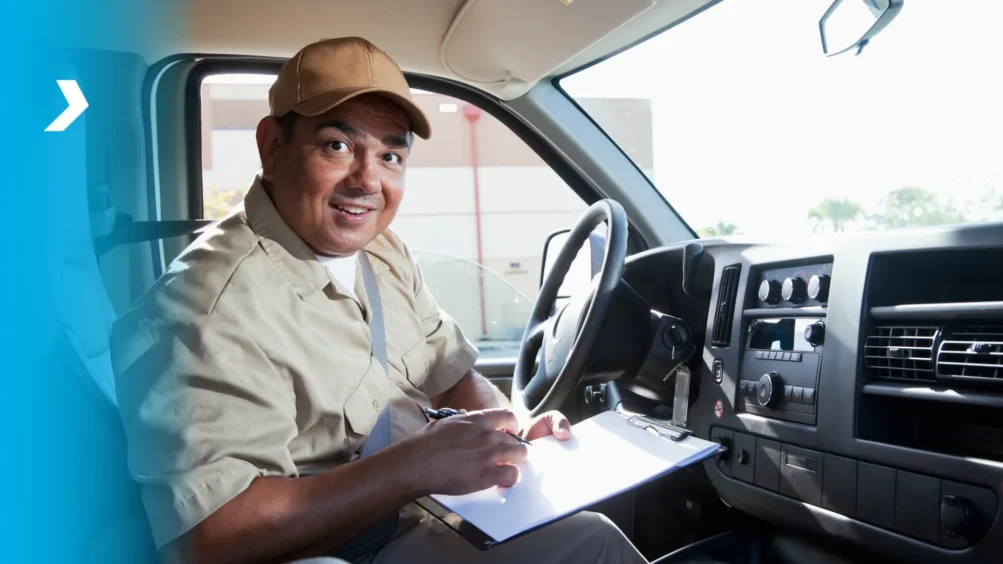
6 Proven Strategies for Reducing Shipping Costs
In today’s ever-evolving world of e-commerce with its daily influx of shipping demands, the quest to trim down shipping expenses isn’t just about thriftiness and cost-effectiveness; it’s a strategic advantage allowing you to stay in the game and propel your business ahead.
In this blog, we’ll delve into six tried-and-tested tactics to curb your shipping expenditure, from minimizing idle transport miles and efficient route planning to harnessing the power of cutting-edge technology. Keep reading to unlock inventive resolutions for tackling your shipping challenges.
Reducing Deadhead Miles
Deadhead miles are the worst enemy of every carrier and shipper. You get nothing but wasted fuel and resources when your commercial vehicle travels without any cargo onboard. To tackle this issue, you need a time-tested truck network like Expedite All. Being the largest small truck network in the US, with over 7,000 commercial vehicles nationwide, we connect shippers with carriers efficiently, significantly reducing deadhead miles and, consequently, your shipping costs.
Additionally, deadhead miles are not only a significant cost factor for shipping but also an environmental concern. Think about all the fuel and emissions produced when a truck is on the road without a load. Reducing these miles is a win-win situation for your business and the planet.
Right-Sizing Shipments
Overpaying for the space you don’t need in case of shipping with a half-empty semi-truck or risking damage due to excessive handling and transit time in case of using LTL is a costly mistake. With Expedite All’s industry’s largest small truck network, ranging from cargo vans to box trucks and straight trucks, you’ll never make such a mistake by always paying for what you use and avoiding shipping air.
At Expedite All, we take the guesswork out of right-sizing shipments. Our extensive network of carriers and various vehicle options means you can always find the perfect fit for your cargo, ensuring it arrives safely and cost-effectively.
Optimal Route Planning
Mileage and fuel costs are two of the most substantial expenses in shipping. Optimizing your routes can significantly impact your bottom line, reducing the time and fuel needed to deliver your goods. At Expedite All, we stand ready to lend our expertise to this endeavor, presenting a diverse selection of small commercial vehicles that facilitate flexible route planning while enhancing fuel efficiency. What’s more, these vehicles are not constrained by the stringent regulations that govern semi-trucks, rendering them swifter and more adaptable for shorter routes, ultimately yielding substantial savings.
Using Intermodal Transport
Intermodal transport is a versatile and cost-effective solution that allows for seamless transitions between different modes of transportation. It’s not just about moving goods from point A to point B; it’s about doing it in the most efficient and cost-effective way possible.
The logistics of intermodal transport can be complex, involving multiple handoffs between different carriers and modes of transportation. At Expedite All, we have perfected this process, making it a seamless experience for their customers. We efficiently handle last-mile delivery, including pickups from rail, airports, and warehouse hubs, ensuring your goods reach their destination safely and on time.
Renegotiating Contracts
Renegotiating contracts is often a neglected aspect of reducing shipping costs. Businesses tend to stick with the same carriers and contracts for years, even when their needs change, which often leads to unnecessary expenses and missed opportunities for savings. At Expedite All, we understand that the shipping landscape is constantly evolving. That’s why we offer on-demand services, eliminating the need for long-term contracts and providing you with the flexibility to choose the most suitable carriers for your evolving needs. You always get the right carrier for the job at the right cost.

Leveraging Technology
We live in the age of digital transformation, where technology plays a crucial role in reducing shipping costs. Features like rate comparison, route optimization, and real-time tracking can streamline your shipping processes and enhance visibility. Expedite All’s proprietary Transportation Management System (TMS) offers all these essential features, ensuring you have the tools to make informed decisions and keep shipping costs under control.
We are a prime example of how technology can transform your shipping operations. We give you complete visibility into the status of your shipments, reducing the risk of delays or losses, and make it easy to compare rates from different carriers, so you can always get the best possible price for your shipping needs.
Conclusion
In a world where every penny counts, implementing shipping-reducing strategies can become that winning and game-changing advantage your business strives for. Each strategy we discussed today, from reducing deadhead miles, making right-size shipments, and utilizing intermodal transport to leveraging technology, renegotiating contracts, and optimizing route planning, offers a holistic approach to cost-effective shipping.
By using these strategies and considering the benefits of partnering with a trusted small truck network like Expedite All, you can optimize your shipping processes, save on expenses, and stay ahead in a competitive market. Don’t let high shipping costs hold your business back; take charge of your shipping and watch your savings grow.
You May Be Interested In
Understanding Different Types of Freight Quotes
The mastery of requesting the right freight quotes is half the battle when it comes to effective cost management and logistics planning. These estimates provided by carriers or logistics companies detailing the cost of transporting goods have a significant effect on budgeting and planning for businesses selling products nationwide or worldwide…
5 ways transportation has been impacted by e-commerce
Consumer Behavior drives how businesses work. Customers tend to follow relatively consistent, but evolving patterns of behavior, and businesses work hard to understand those patterns. However, with rise of COVID-19 infections, and the resulting recommendations to distance, many consumers have adopted new habits.